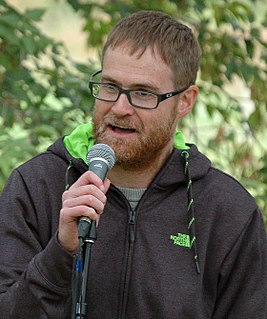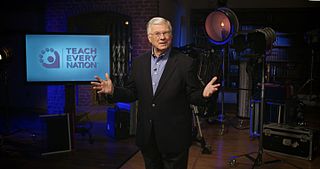A Quote by Joseph Glanvill
We cannot conceive how the Foetus is form'd in the Womb, nor as much as how a Plant springs from the Earth we tread on ... And if we are ignorant of the most obvious things about us, and the most considerable within our selves, 'tis then no wonder that we know not the constitution and powers of the creatures, to whom we are such strangers.
Related Quotes
"Sabbath is not primarily about us or how it benefits us; it is about God, and how God forms us. It is not, in the first place, about what we do or don't do; it is about God - completing and resting and blessing and sanctifying. These are all things that we don't know much about......But it does mean stopping and being quiet long enough to see - open-mouthed - with wonder - resurrection wonder.....we cultivate the "fear of the Lord". Our souls are formed by what we cannot work up or take charge of. We respond and enter into what the resurrection of Jesus continues to do."
I received a most amusing postcard the other morning. Unfortunately, it was not signed in a readable manner so I cannot answer it privately. But it comes from Moblie, Ala., and says: 'Dear Mrs. Roosevelt: You have not answered my question, the amount of Negro blood you have in your veins, if any.' I am afraid none of us know how much nor what kind of blood we have in our veins, since chemically it is all the same. And most of us cannot trace our ancestry more than a few generations.
From whence it is obvious to conclude that, since our Faculties are not fitted to penetrate into the internal Fabrick and real Essences of Bodies; but yet plainly discover to us the Being of a GOD, and the Knowledge of our selves, enough to lead us into a full and clear discovery of our Duty, and great Concernment, it will become us, as rational Creatures, to imploy those Faculties we have about what they are most adapted to, and follow the direction of Nature, where it seems to point us out the way.
However much we obfuscate or ignore it, we know that the factory farm is inhumane in the deepest sense of the word. And we know that there is something that matters in a deep way about the lives we create for the living beings most within our power. Our response to the factory farm is ultimately a test of how we respond to the powerless, to the most distant, to the voiceless--it is a test of how we act when no one is forcing us to act one way or another.
?In life, at sometime or another we come to a point where all relationships cease—where there is only us and Allah. There are no parents, brother or sister, or any friend. Then we realise that there is no earth under us nor is there sky above, but only Allah who is supporting us in this emptiness. Then we realise our worth – it is not more than a grain of sand or the leaf of a plant. Then we realise our existence is only confined to our being. Our demise makes not a whit of difference to the world around us, nor to the scheme of things.
So how can we test the idea that the transition from nonlife to life is simple enough to happen repeatedly? The most obvious and straightforward way is to search for a second form of life on Earth. No planet is more Earth-like than Earth itself, so if the path to life is easy, then life should have started up many times over right here.
There's so much humanity in a love of trees, so much nostalgia for our first sense of wonder, so much power in just feeling our own insignificance when we are surrounded by nature...yes, that's it: just thinking about trees and their indifferent majesty and our love for them teaches us how ridiculous we are - vile parasites squirming on the surface of the earth - and at the same time how deserving of life we can be, when we can honor this beauty that owes us nothing.
Mind is elusive, you cannot hold it in your hand. You cannot force it into a test-tube. The only way to know it is to know it from within, from your witnessing self. The more you become aware, the more you can watch your mind - its subtle functioning. The functioning is tremendously complex and beautiful. Mind is the most complex phenomenon on the earth, the most subtle flowering of consciousness. If you want to really understand what the mind is, then you will have to detach yourself from your mind, and you will have to learn how to be just a witness. That's what meditation is all about.
All men and women are born, live, suffer and die; what distinguishes us one from another is our dreams, whether they be dreams about worldly or unworldly things, and what we do to make them come about... We do not choose to be born. We do not choose our parents. We do not choose our historical epoch, the country of our birth, or the immediate circumstances of our upbringing. We do not, most of us, choose to die; nor do we choose the time and conditions of our death. But within this realm of choicelessness, we do choose how we live.
And if I remain in the dark about our purpose here, and the meaning of eternity, I have nevertheless arrived at an understanding of a few more modest truths: Most of us fear death. Most of us yearn to comprehend how we got here, and why-- which is to say, most of us ache to know the love of our creator. And we will no doubt feel that ache, most of us, for as long as we happen to be alive.
There is so much about my fate that I cannot control, but other things do fall under the jurisdiction. I can decide how I spend my time, whom I interact with, whom I share my body and life and money and energy with. I can select what I can read and eat and study. I can choose how I'm going to regard unfortunate circumstances in my life-whether I will see them as curses or opportunities. I can choose my words and the tone of voice in which I speak to others. And most of all, I can choose my thoughts.






































